The Non-fiction
“Ayn Rand.” The Internet Encyclopedia of Philosophy, 2001.
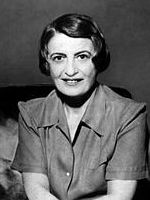
Ayn Rand was a major intellectual of the twentieth century. Born in Russia in 1905 and educated there, she immigrated to the United States after graduating from university. Upon becoming proficient in English and establishing herself as a writer of fiction, she became well-known as a passionate advocate of a philosophy she called Objectivism. This philosophy is in the Aristotelian tradition, with that tradition’s emphasis upon metaphysical naturalism, empirical reason in epistemology, and self-realization in ethics. Her political philosophy is in the classical liberal tradition, with that tradition’s emphasis upon individualism, the constitutional protection of individual rights to life, liberty, and property, and limited government. She wrote both technical and popular works of philosophy, and she presented her philosophy in both fictional and nonfictional forms. Her philosophy has influenced several generations of academics and public intellectuals, and has had widespread popular appeal.
“Egoism in Nietzsche and Rand” [pdf]. Published in The Journal of Ayn Rand Studies 10:2, Spring 2009, 249-291. Audiobook version.
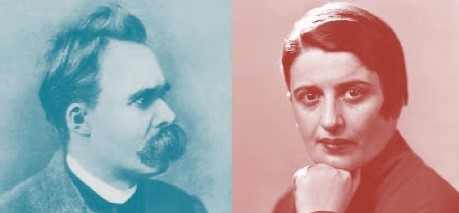
Journal article: “Egoism in Nietzsche and Rand,” by
Stephen R. C. Hicks
“Ayn Rand and Contemporary Business Ethics”. Originally published in The Journal of Accounting, Ethics & Public Policy 3:1 (Winter 2003), pp. 1-26.
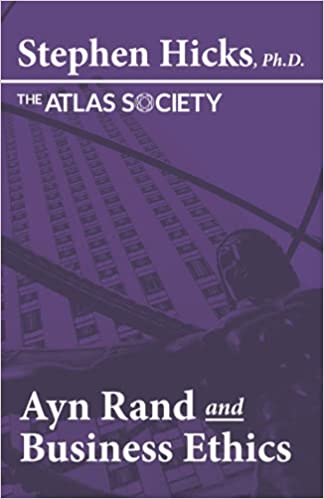
Abstract: Most traditional systems of business ethics hold that business is essentially amoral or immoral. Such systems share a common assumption: that conflicts of interest—either because of scarce resources or innate human badness or sin — are basic to the human condition. That assumption of fundamental conflict is rejected in Ayn Rand’s system of ethics. Rand’s system, by contrast, emphasizes the power of human reason to shape one’s character and beliefs, and it makes fundamental reason’s power to develop new resources and cultivate win-win social relationships. In this essay, Stephen Hicks applies Rand’s radical ethical perspective to key issues in business ethics and contrasts it to those perspectives based on the assumption of the amorality or immorality of business.
Also available in an audiobook edition, online text version at the Social Science Research Network, and in the following translations: Korean, German, Serbo-Croatian, Portuguese and Spanish
“Objectivism and Philosophy of Education.” My 2.5 hour video lecture on Objectivism, including its relation to Montessori education. The lecture is Part 12 of my Philosophy of Education course.

Other “isms” in the series include Pragmatism, Behaviorism, Idealism, Realism, Existentialism, Marxism, and Postmodernism.
Part 1: Introduction to the Course. Part 2: Metaphysics. Part 3: Epistemology. Part 4: Human Nature. Part 5: Ethics. Part 6: Transition. Part 7: Idealism. Part 8: Realism. Part 9: Pragmatism. Part 10: Behaviorism. Part 11: Existentialism. Part 12: Objectivism. Part 13: Marxism. Part 14: Postmodernism. Part 15: Conclusion. Appendix.
Review of Tara Smith’s Ayn Rand’s Normative Ethics [PDF]. Published in Philosophy in Review, October 2007. Audio version of the review in MP3 format or at YouTube.

Review of Tara Smith‘s Ayn Rand’s Normative Ethics: The Virtuous Egoist
By Stephen R. C. Hicks, Rockford University.
Smith’s book is a strongly written addition to the scholarly literature on Ayn Rand’s philosophy. Its first great virtue is that it connects Rand’s work to recent literature on ethics.
Smith cites the work of Philippa Foot, Julia Annas, Berys Gaut and Peter Railton, and notes the many positive connections between theirs and Rand’s work of forty years ago
Review of Donna Greiner and Theodore Kinni’s Ayn Rand and Business. The Journal of Ayn Rand Studies 4:2, Spring 2003.
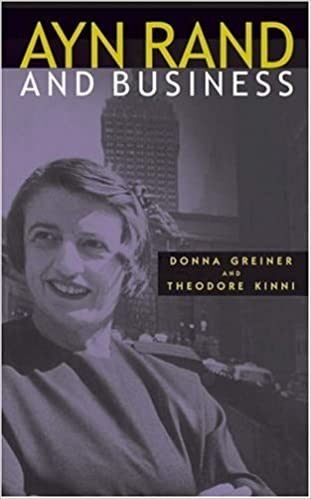
Review of Donna Greiner and Theodore Kinni’s Ayn Rand and Business. The Journal of Ayn Rand Studies 4:2, Spring 2003.
Review of Ronald Merrill’s The Ideas of Ayn Rand [PDF]. IOS Journal, 1992. (Disclaimer: I didn’t choose the title for this review of Merrill’s good-but-not-great book.)
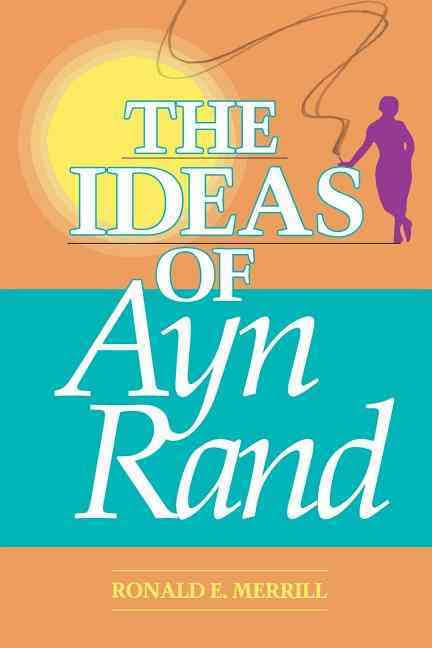
Big Game, Small Gun?
By Stephen Hicks
The Ideas of Ayn Rand, by Ronald Merrill, is a systematic investigation of her ideas published by an academic press.
Mr. Merrill has been engaged with the fiction and philosophy of Ayn Rand for many years. He is in substantial agreement with her and makes clear where he disagrees. The result is a treatment that is light years better than most authors claiming to present and critique Rand’s work. Ideas offers many provocative points worthy of discussion and several that are both true and (to my knowledge) original.
Review of Carlin Romano’s America the Philosophical (Alfred A. Knopf, 2012). Reason Papers 34:2, October 2012.
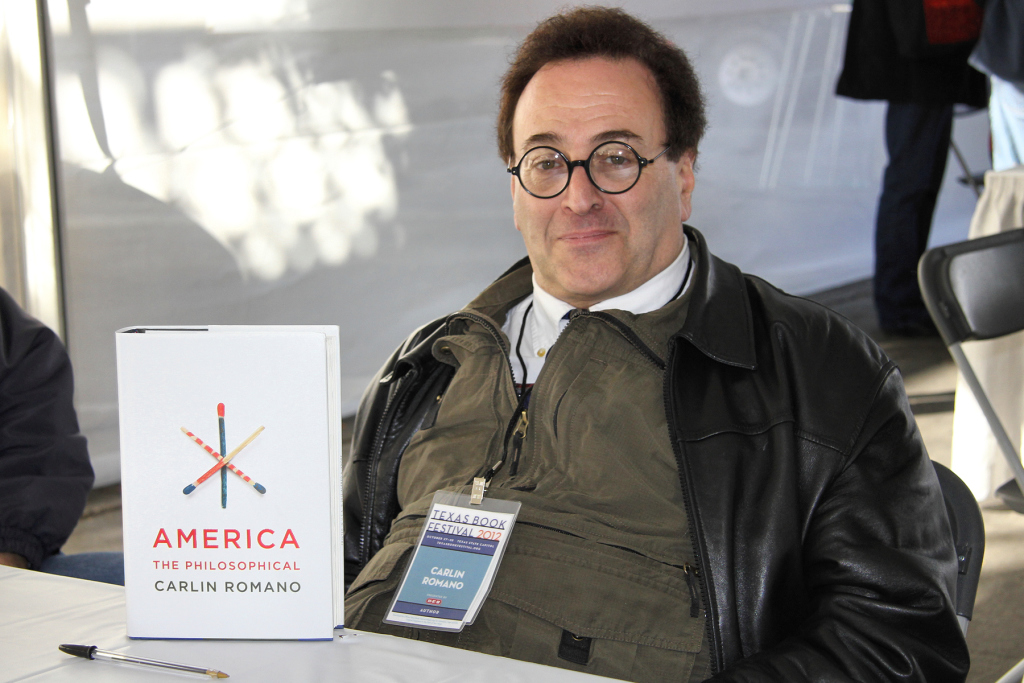
America the Philosophical: Carlin Romano on Ayn
Rand by Stephen Hicks
Over the years I’ve enjoyed and learned from many of Carlin Romano’s articles in The Chronicle of Higher Education. He can do good philosophical reporting. So I picked up his latest book, America the Philosophical, and I was disappointed.
Review of Allan Gotthelf and James G. Lennox’s Concepts and Their Role in Knowledge: Reflections on Objectivist Epistemology (University of Pittsburgh Press, 2013). Notre Dame Philosophical Reviews, November 2013.
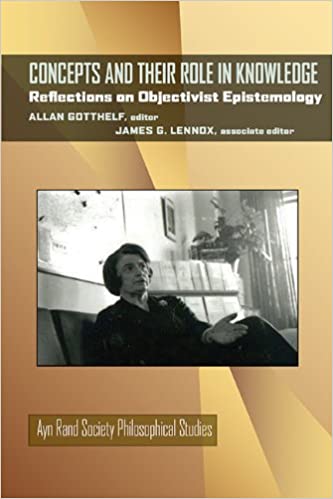
Concepts and Their Role in Knowledge: Reflections on Objectivist Epistemology
Reviewed by Stephen R. C. Hicks, Rockford University.
The most important issue in modern philosophy is the relationship between consciousness and reality. Allan Gotthelf and James Lennox have collected a highly-competent set of essays arguing the strengths and weaknesses of Objectivist epistemology. The fourteen essays were originally presented as papers at Ayn Rand Society meetings at the American Philosophical Association and, after revision, prepared for this volume.
Nietzsche and Objectivism. Spring 2000 online course archived at The Objectivist Center.
Nietzsche and Rand: 124 Similarities and Differences. Updated June 2020.

This is a work in progress. Corrections and additions welcome. The long comparison table below is also here in PDF format.
Nietzsche and Rand:
A Comparison of Positions on 124 Issues
Stephen R.C. Hicks, Philosophy, Rockford University
Movement in-fighting and schisms [Neo-Kantians, Freudians, and Rand’s comments on Frank Lloyd Wright’s circle.]
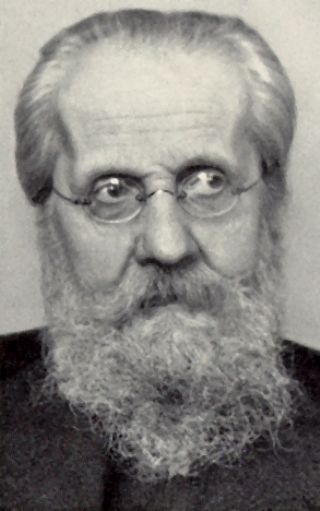
Movement in-fighting and schisms [Neo-Kantians, Freudians, and Rand’s comments on Frank Lloyd Wright’s circle.]
Here is an example of a phenomenon that has long puzzled me: Nasty in-group fighting. In The Rise of Neo-Kantianism, Klaus Christian Köhnke asks:
What can “explain one of the most distressing features of the neo-Kantians…”
The Fiction
Roark and Keating: First meetings. And The Fountainhead (Introduction to Philosophy this week).
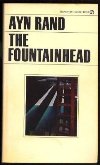
In my Introduction to Philosophy course this week we are reading and discussing The Fountainhead, a great novel on the themes of independence and integrity.
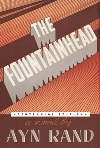
When I teach Ayn Rand’s The Fountainhead, my focus in class is philosophical but I do like to point out along the way how her fiction-writer’s methods concretize, dramatize, and foreshadow her abstract themes.
Toohey’s five strategies of altruism.
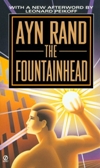
The ethics of altruism holds that others are the standard of value. One is good to the extent one puts the interests of other first, acts to achieve their interests, and, when necessary, sacrifices one’s interests for their sake.
In The Fountainhead, Ellsworth Toohey is the major strategist of altruism, and in my reading he uses five distinct variants of altruism to achieve his ends
Gail Wynand’s power strategy. Part 2 forthcoming.

Like Peter Keating, Gail Wynand pursues a use-and-be-used career strategy. Wynand uses strong-arm tactics when necessary in building up his newspaper’s market; he manipulates his employees with money to break their integrity; he fires those like Dominique who refuse to bend; and he lets the lowest-common-denominator of public taste dictate the content of the newspaper he works so hard to build up. Like Keating, he acquires plenty of money and a position at the top of his profession’s social hierarchy.
Gordon Prescott: Heidegger’s disciple?

The Fountainhead’s Gordon Prescott—Heidegger’s disciple?
Re-reading The Fountainhead makes me wonder: Is the character Gordon Prescott based on Martin Heidegger’s philosophy?
Marcel Duchamp and Lillian Rearden.
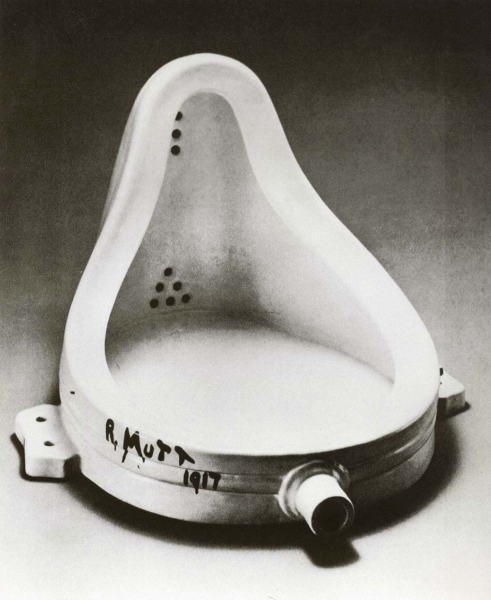
Marcel Duchamp’s urinal was named most influential work of modern art of all time, according to a vote by 500 critics. Duchamp named it Fountain.
It was initially rejected for display at the Society of Independent Artists exhibit in 1917
Jane Addams and Ellsworth Toohey.

The biographer of Nobel Peace prize-winning (and Rockford University graduate) Jane Addams recounts this incident, in which Addams invokes Kantian duty-ethic in response to a friend’s desire for some gratitude in response to her charitable works: “…”
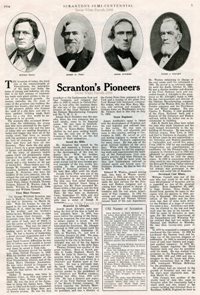
We’re reading Burton Folsom’s The Myth of the Robber Barons for my Business and Economic Ethics course.
Atlas Shrugged is really a documentary, datum #217
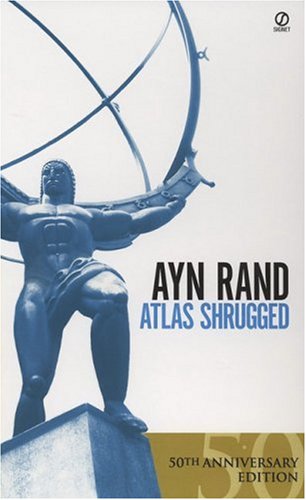
In the Atlas Shrugged chapter entitled “Wyatt’s Torch” (1.10), Rand has the increasingly desperate central planners pass the “Public Stability Law,” one provision of which states that “All the manufacturing establishments of the country, of any size and nature, were forbidden to move from their present locations.” In the novel’s collapsing economy, many companies are fleeing the over-regulated and -taxed states for relatively freer locations.
Return to the StephenHicks.org main page.
Oh you’re a randian? HOW EMBARRASSING
Good argument, ASDF.
I began reading Rand about 50 years ago, and I’m still amazed at the number of her detractors who think mere sneering is an effective argument (“from intimidation,” as Rand taught us). My favorite response is “‘Shut up,’ he explained.”
When people talk about Rand they always jokingly ask. Who is gonna clean the toilets?
Likely entrepreneurs who run janitorial services, or machines developed by innovators. A good joke, yes, but with a serious edge.
Hey Dr. Hicks
What is your response to the classical liberals and libertarian intellectuals who regard Rand as a mere historical curiosity. Say, for example, the well respected philosopher Michael Huemer who argues on his website against objectivism. He says that he doesn’t waste his time on the topic anymore because it isn’t worth the time because objectivist are convinced. Would you read Huemers paper and then respond?
Hi Jack: Mike Huemer is a smart guy, and I expect he has some thoughtful arguments. Realistically, though, I don’t have time for new projects until after 2018. Perhaps this recent exchange with Matt Zwolinski is a start, as it covers some of the content and, more importantly, methodological differences between some libertarians and Objectivists: http://www.learnliberty.org/blog/debate-is-ayn-rand-right-about-rights/.
Hello Stephen, while putting together some art history for my design students I came across your essay, which is defnititely an interesting way of seeing things, and I while introduce it as a counterpoint to mainstream views on art. While reading your thoughts on how art became increasingly negative, I had some thoughts on where to find positive imagery – advertising.
Some rumination later, I was wondering about what you thought about positive imagery today increasingly connected to products, and somewhat disconnected from actual life experience or, worse, any higher good.
Happy families have become an image to sell cleaning products with – an image associated with cleaning products.
I understand, coming from a design point of view, that the advertiser tried to associate his product with the image, but I’m afraid, it also worked the other way around, – and thus, art became negative, but at least not like it’s trying to sell something to me.
Not that trying to sell something is per se bad, however, the smile one the faces of the -of any- happy family, really, doesn’t feel sincere anymore.
Yes, art got ugly, and you gave a good overview of how that happened – but at the same time beauty got insincere …
sorry for the typos
I’m a student of philosophy at a local university, and I’m new to the study of Objectivism. I find that Rand confirms many of my suspicions about much of modern philosophy, and shares my frustrations with the current vogue nonsense being taught as “metaphysics” and “epistemology.” However, being a diligent and independent thinker myself, I have been trying to examine Objectivism objectively, but in actively searching for intelligent critiques of Rand’s arguments, all I find are ad hominem attacks, epithets, and appeals to popular sentiment. I read constantly that Ayn Rand was rude, arrogant, etc., as if Descartes or Hume or Nietzsche were straightlaced saints immune to criticism. It is totally ludicrous. In fact, I share some of the personal criticisms of Rand, but when it comes to the truth and viability of her arguments philosophically, I really just don’t give a damn about her personal life.
Why do academic philosophers, by and large, fail to actually engage Objectivist arguments in a meaningful way? Why does the very suggestion that they engage her work seriously evoke snickers, as if doing so is beneath them?
These are honest questions. Thank you.
Yes, like many great thinkers, Rand is a polarizing figure. It’s always only those committed to truth and willing to do the work it requires who will take on the challenges the great thinkers pose.
Hello Professor,
I have just finished reading your excellent work ‘Explaining Post-Modernism’. In your concluding paragraph, you make the statement (to paraphrase) that the weakness of the Enlightenment is that it has yet to be fully articulated and defended. Seeing that Rand seemingly predicted correctly that the philosophy of Kant would eventually lead to the intellectual (and perhaps political/ethical) climate we have today, where do you see the failings in her attempted defense and articulation in the primacy of Reason/Truth?
Hi Troy:
Thanks for your comment on EP — I’m glad it was useful to you.
About Rand’s contributions: “failings” isn’t the right word here, I think. Instead it’s that while she wrote powerfully in general terms about reason and one great introductory treatise on concept-formation, there’s much more to be done about perception, propositions, narrative and theory-construction, logic, the foundations of mathematics, and scientific method.
Dear Stephen,
I am in the process of trying to obtain the pamphlets: Ayn Rand and Contemporary Business Ethics & Free Speech & Postmodernism. Amazon is charging a lot for postage to Scotland. I am wondering if I may purchase them from yourself directly by PayPal.
Thank you for your inspirational philosophy, talks, and contributions to the world of thinking. As a Scottish Biomedical Sciences student, I am hellishly preoccupied with the notion that perhaps my gut feelings of what is right and wrong can finally be substantiated by much of your work. I don’t really know where the saying, ‘knowledge is power’ came from, but I believe it to be true. And I think the formula for life as I knew it is not understood enough so much that it is safe from the social deconstructionists, so I believe you have helped raise awareness of how we can appreciate who we are, what we have to do to maintain some values and understand societal trajectories before the boat hits the iceberg so to speak. The knowledge you provide will provide strength to understanding human nature and hopefully help us steer away from bad directions.
I wish you a very happy and successful new year.
Best wishes,
Iain Stewart 23
(Undergrad at University of Dundee)
Dear Dr Hicks,
I was referred to you by David Kelley. I reached out to The Atlas Society concerning the findings of a personal 6 year experiment to explore ways to introduce principles of Kaizen, Six Sigma, and Lean Manufacturing, into the governing of our nation. Lean Government…CRAZY…I know, yet during the project there were many unexpected breakthroughs that I now have in a book nearing completion, which proposes a bold plan to achieve good government. I know you must be busy, but can we talk? It appears to me that we have a lot of common interests, and I need an Objectivist’s opinion. I feel your background makes you uniquely qualified to judge these concepts. Can you help?
Sincerely,
Greg Orth
Postmodernism and Ayn Rand. Has Ayn Rand directly address Postmodernism? I did not see it in the Lexicon Book. If not directly, what is the closest she comes? Any essay of hers come to mind that I should read?
Years later…
Greetings Mr. Hicks. Your site, your thinking, your attitude never fail to impress me. And most particularly your attention to Ayn Rand deserves, in my mind, a salute! (As an ol’ Vietnam Veteran I rarely offer a salute to anyone these days. Being alive to confer one after too many failed attempts by Destiny to gather me in is, now and then, a pleasure! 🙂
As for Miss Rand, her writings are most dynamically predictive and ever prescient. Her incessant detractors, and as well, unfortunately, all of us, are now being swallowed up in the very social(ist) miasma she fought.
P.S. = The great reclamation of wasted land and bastardized environment could be regenerated by our prickly friend, the cactus. Hoping more people…ahem…get the point!
My Best
Much appreciated, Mike! Thank you.
Re the “human condition”…
The TRUE human condition or world we live in is nearly all the manifestation of the natures of the 2 married pink elephants in the room and has never been on clearer display than with the deliberate global Covid Scam atrocity — see “The 2 Married Pink Elephants In The Historical Room –The Holocaustal Covid-19 Coronavirus Madness: A Sociological Perspective & Historical Assessment Of The Covid “Phenomenon”” at https://www.rolf-hefti.com/covid-19-coronavirus.html
“2 weeks to flatten the curve has turned into…3 shots to feed your family!” — Unknown